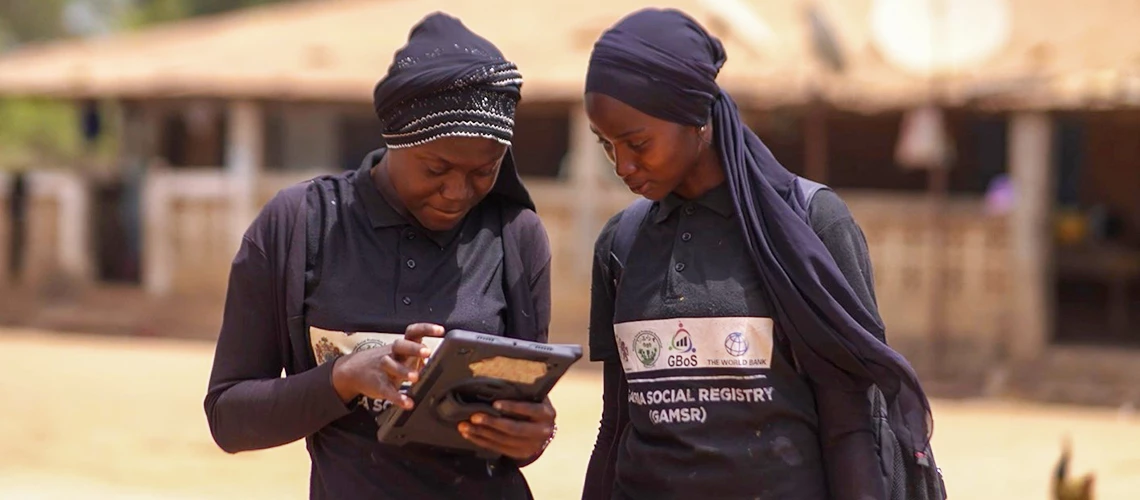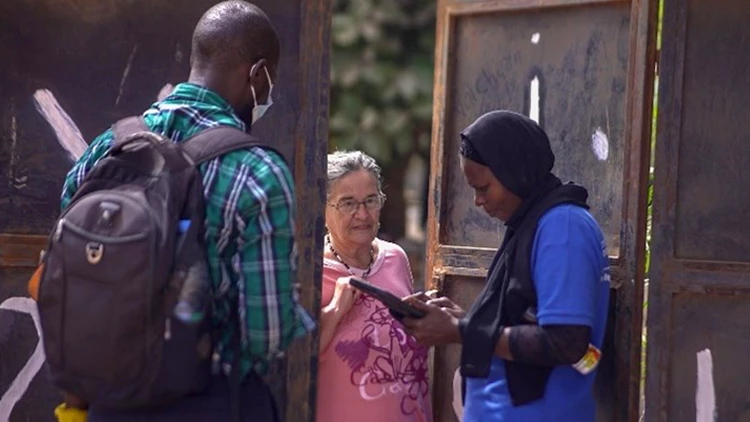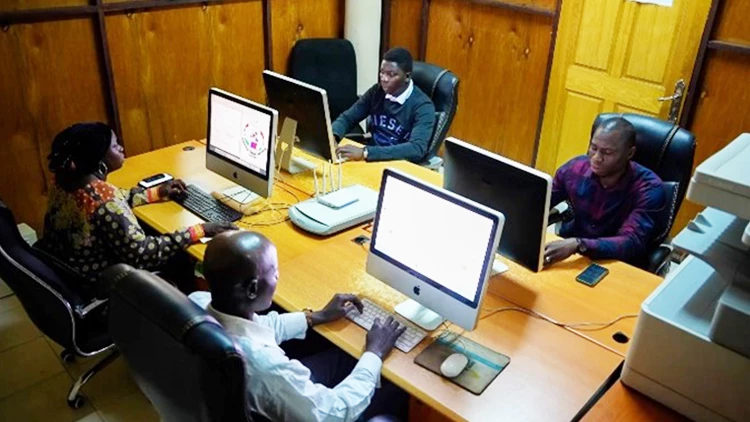 Two enumerators collecting data for The Gambia Social Registry (GamSR). Credit: Gambia Social Safety Net Project
Two enumerators collecting data for The Gambia Social Registry (GamSR). Credit: Gambia Social Safety Net Project
The Gambia Social Registry (GamSR), a national social registry initiated in 2021, now covers 40 out of 43 districts and accommodates 203,022 households, representing 70% of the nation’s population in just two years.
Since its inception, GamSR's data has played a pivotal role in various programs in The Gambia, notably the 'Nafa Quick' initiative, which formed the cornerstone of the Government of The Gambia (GoTG) COVID-19 pandemic response. It swiftly reached 78,422 households in 30 districts, to mitigate the adverse effects of the pandemic on impoverished households. Subsequently, the Nafa (cash transfers) program, aimed at providing cash to the poorest, covered 20 districts and 16,966 households, employing GamSR data for eligibility assessments.
Several other programs, including the National Disaster Management Agency (NDMA), the Resilience of Organizations for Transformative Smallholder (ROOTS) Project under the Ministry of Agriculture, and the World Food Programme (WFP), have also utilized data from the social registry to identify beneficiaries for their poverty alleviation and food security interventions.
These programs have had significantly impacted the lives of the beneficiaries. For instance, the Office of the President/ Ministry of Agriculture is targeting 25,000 poor households in rural Gambia through the China Rice Aid Distribution, ensuring access to food and other essentials. The WFP has reached 14,129 extremely poor households, including those with disabilities, providing much-needed support during lean seasons.
 The Gambia Social Registry (GamSR) staff collecting data as part of developing the registry. Credit: Gambia Social Safety Net Project
The Gambia Social Registry (GamSR) staff collecting data as part of developing the registry. Credit: Gambia Social Safety Net Project
Stakeholders buy-in and local context: Collaborating social protection agencies contributed to the GamSR's success by developing a standardized assessment method, including a digitized household questionnaire for accurate poverty targeting and eligibility identification. The adoption of the proxy means test (PMT) model, assessing household welfare based on characteristics correlated with poverty, effectively categorized households by economic status. This approach was validated in the initial districts of the Nafa Program, demonstrating precision in identifying the most impoverished households.
 National Social Protection Secretariat (NSPS) staff working on assignments to do with the Gambia Social Registry. Credit: Gambia Social Safety Net Project
National Social Protection Secretariat (NSPS) staff working on assignments to do with the Gambia Social Registry. Credit: Gambia Social Safety Net Project
Institutional Arrangements and Early Champions: Effective institutional arrangements rollout, tailored to suit The Gambia's local dynamics, played a crucial role in the GamSR's success. Utilizing existing government institutions, such as the Gambia Bureau of Statistics (GBoS) for data collection and coordination, and the Ministry of Information and Communication Infrastructure for public information campaigns, facilitated an inclusive development process reflecting the diverse needs and perspectives of stakeholders. Early involvement and ownership by high-level government officials provided the necessary impetus and financial backing for the project. Despite successes, challenges arose in rolling out GamSR through government institutions, highlighting the complexities of internal coordination and enforcement.
The GamSR’s acceleration enabled by technology: Swift progress was propelled by technological innovations like computer-assisted personal identification (CAPI) tools and the development of a Social Registry Information System (SRIS), revolutionizing survey management with automated operations, robust data quality checks, and a "send-back-to-supervisor" mechanism for data rectification. Although challenges persist in reaching remote populations, ensuring data accuracy in diverse contexts, expanding infrastructure, prioritizing community engagement and communication, leveraging partnerships, and fostering a data-secure environment are all crucial steps to unlock technology’s full potential.
Adapting to diverse environments: In The Gambia, differentiating urban from rural contexts presented challenges in data collection. Addressing respondent fatigue with local solutions is essential for the success of data collection efforts.
In conclusion, the GamSR's swift establishment and effective utilization is an African success story in social protection systems. Its journey offers valuable lessons for improved policy decision-making to support the poor and vulnerable in the Gambia and serves as a model for transformative systems building globally.



Join the Conversation